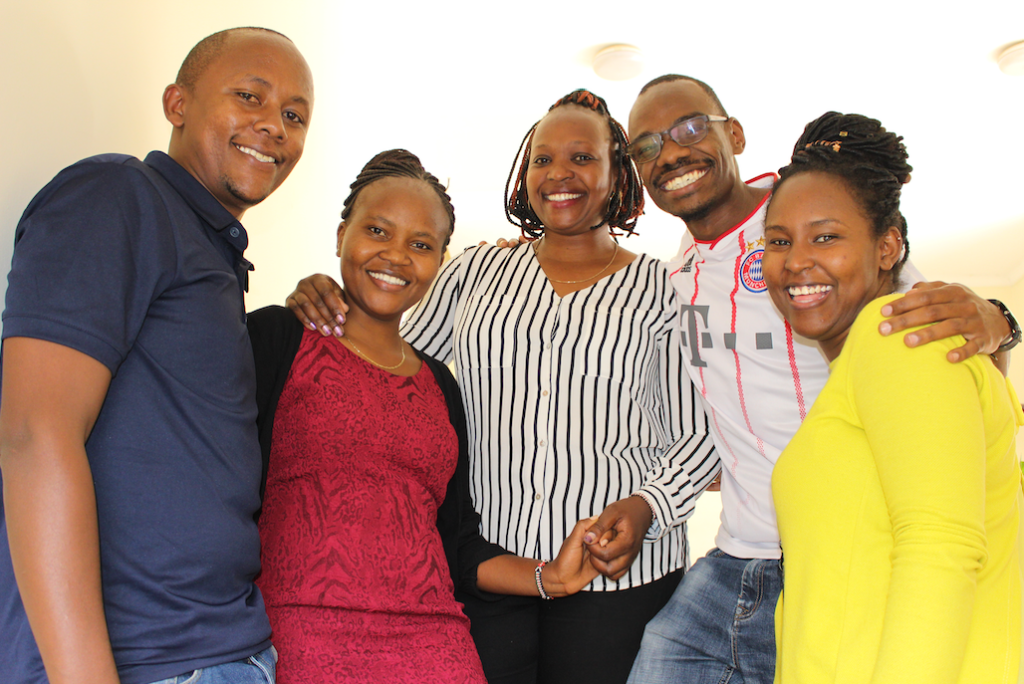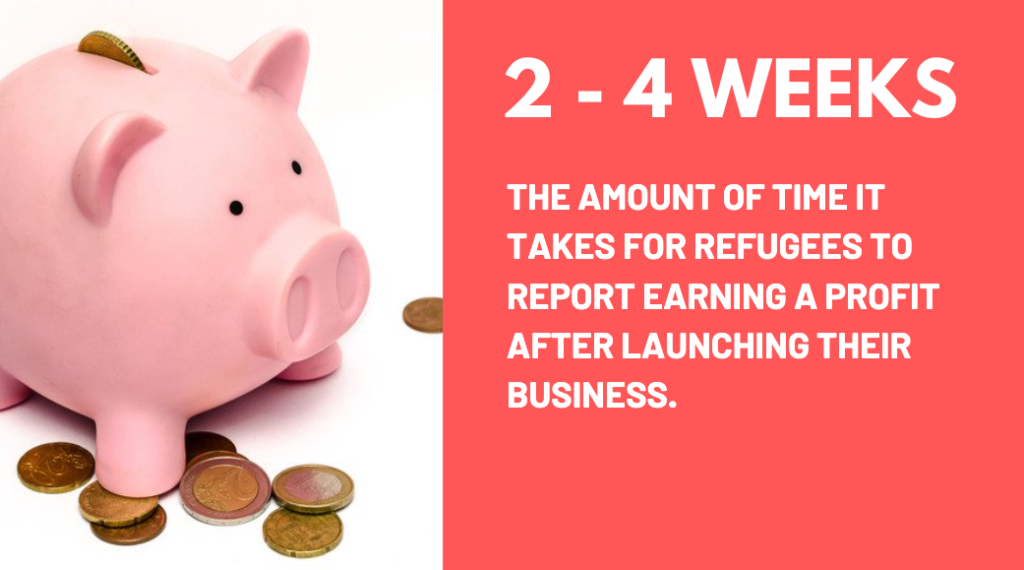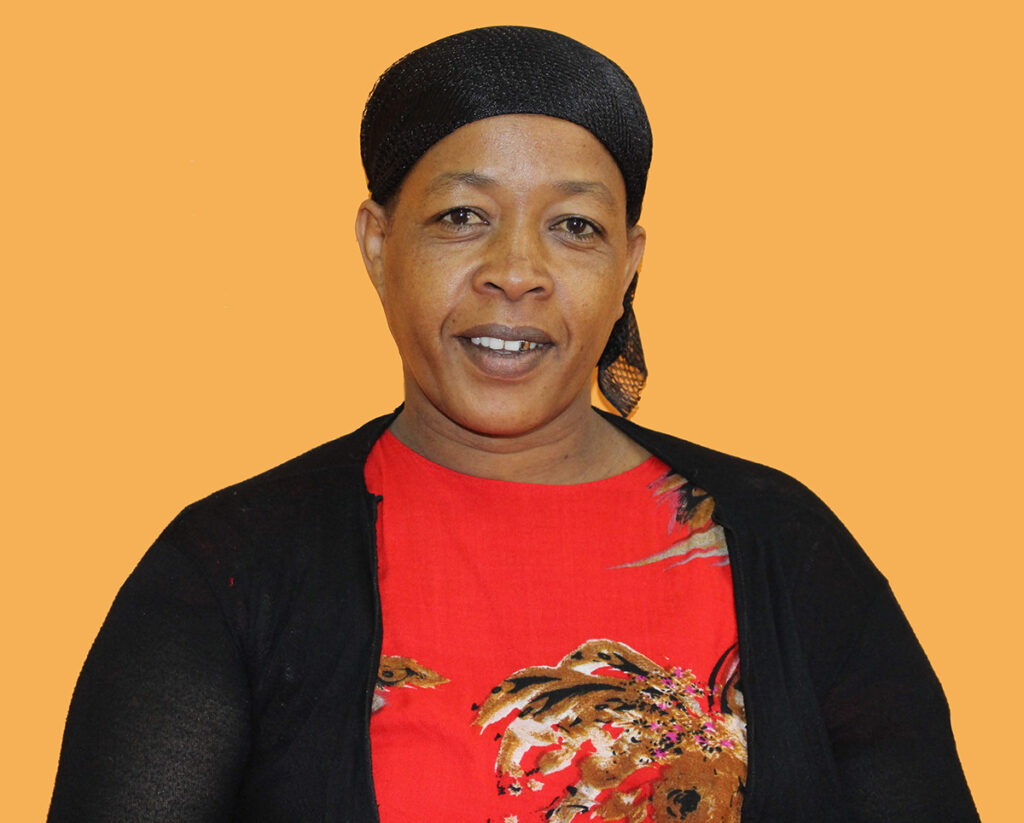Most refugees desperately want the opportunity to provide for themselves and their families – to work, to use their skills, and make decisions about their finances, their lives, and their futures.
Through our Livelihoods program, we help urban refugees to achieve greater self-sufficiency and a better quality of life by providing business skills trainings, and helping clients to launch small businesses.
Since RefugePoint’s Livelihoods program was launched in 2013, we have helped refugees to launch over 1,000 businesses, including hair salons, secondhand clothing shops, food stalls, and tailoring businesses, among others.

Our Livelihoods team assesses refugees on their ability to start a business and walks clients through the process of how to create business plans and run a successful business. For many refugees, the biggest struggle in starting a small business is the lack of initial capital for investment. We have learned that the best way to help our clients is to provide a small cash grant (typically about $200) which is used to start or expand a business; serving as a pathway to self-reliance.
RefugePoint staff monitor and advise entrepreneurs throughout all phases of small business planning, start-up, and expansion.

Most refugees report earning a profit within just two to four weeks of launching their businesses, which enables them to purchase food for their families, pay rent, enroll their children in school, and really become active members of the communities in which they live.

“I sell secondhand clothes, and RefugePoint taught me many skills about buying, selling, and pricing. From my savings, I have been able to pay for my children’s school fees, and buy a gas cooker, a T.V., and a bunk bed. My three children and I used to eat only one meal a day and would go to sleep hungry. Now we eat three times a day, and we have a bed to sleep in.” Read Baati’s story.